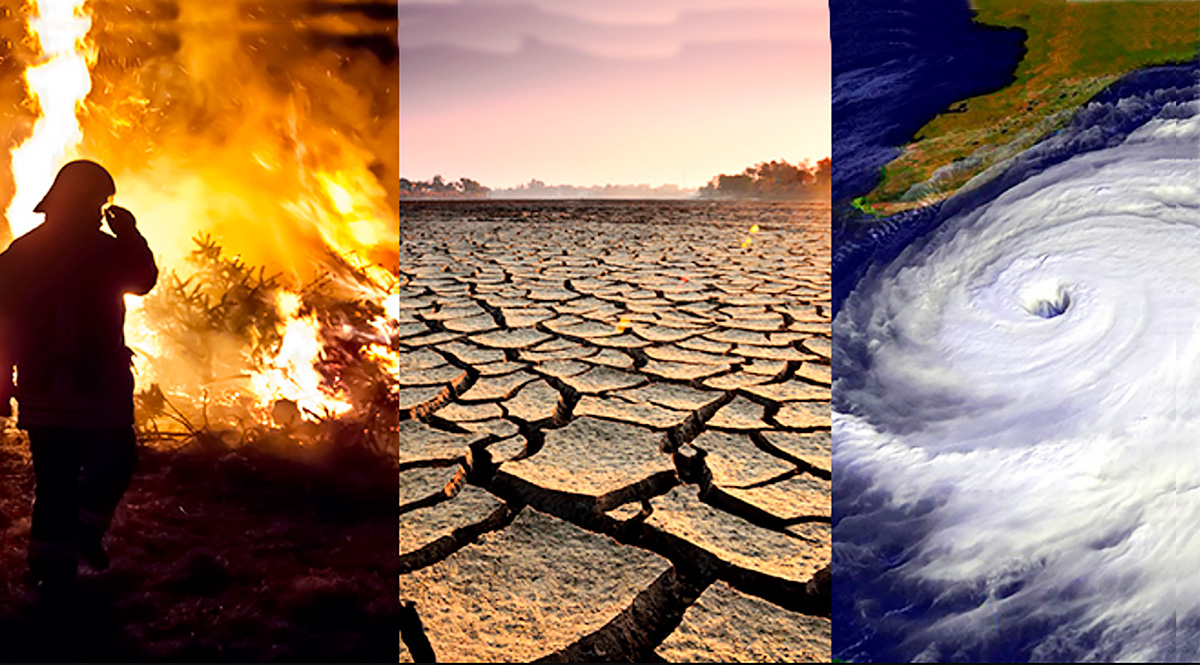A collaboration of fifteen European research centres, including the Image Processing Laboratory (IPL) of the University of Valencia, has received funding from the H2020 program to analyse the influence of climate change on extreme weather events. This is the XAIDA project, whose final objective is to improve the detection of climatic extremes and to evaluate risks through AI and their attribution to human activity, as well as to develop teaching and informative material aimed mainly at future generations.
The climate changes rapidly and produces loss and damage in all areas and sectors. The way in which climate change modifies and enhances extreme weather events is especially relevant. Extreme events often provide information on future weather conditions and their implications, but not all of them are harbingers of the future. For this reason, it is important to scientifically establish or disprove a causal link between events and human influence on climate.
Although climatologists have successfully evaluated the relationship between climate change and phenomena such as heat waves or torrential rains, it remains difficult to establish this link in other types of extreme events. However, the interdisciplinarity and the recently developed methods in the field of Artificial Intelligence (AI) offer great potential when it comes to seeking solutions in this regard and advancing in the processes of adaptation to climate change.
XAIDA, a new EU-funded project starting in September 2021, brings together the interdisciplinary expertise of a consortium led by the Centre National de la Recherche Scientifique (CNRS)-Institute Pierre Simon Laplace (IPSL) and the Vrije Universiteit Amsterdam, and formed by 15 universities and research centres, including the Image Processing Laboratory (IPL) of the University of Valencia.
The consortium brings together experts in machine learning, statistics and climate modelling. Together they will design new methods and apply them to recent high-impact events; they will examine its possible causal link and association (attribution) with anthropogenic climate change, and will predict whether such phenomena – or more intense ones – will occur in the future, how often and with what intensity. The team will assess the risks and possibilities of adaptation to similar future events. In addition, it will prepare informative material for the general public, as well as teaching material aimed at training and raising awareness of the younger generations.
“We often hear that certain extreme weather events, such as heat waves or floods, are caused by climate change. It is dangerous to affirm such a thing without having carried out a rigorous statistical analysis”, says Gustau Camps-Valls, one of the most cited Spanish scientists worldwide in his field and Principal Investigator of the University of Valencia in the consortium. “To do this, we work with AI in three directions. On the one hand, we develop techniques capable of detecting in space and time a great variety of extremes, such as droughts, for example. On the other, we develop models capable of anticipating these events and impacts such as crop losses. And finally we try to discern if such events would have been possible and with what frequency and intensity they would have occurred in a counterfactual world without human action on the planet”, concludes Camps-Valls.
The project represents a step forward in the study of climate change and the causes that produce it.
The consortium is made up of: Centre National de la Recherche Scientifique - IPSL, Vrije Universiteit Amsterdam, University of Oxford, Koninklijk Nederlands Meteorologisch Instituut, Met Office Hadley Centre, Max-Planck Gesellschaft, University of Valencia, University of Leipzig, Deutsches Zentrum für Luft -und Raumfahrt, ETH Zürich, Helmholtz Centre for Environmental Research, University of Reading, UNESCO - International Centre for Theoretical Physics, Office for Climate Education, Red Cross Red Crescent Climate Centre), led by CNRS-IPSL and VU Amsterdam.
The project lasts for four years and has received € 6M in funding from the European Union’s Horizon 2020 research and innovation program under grant agreement No. 101003469.


